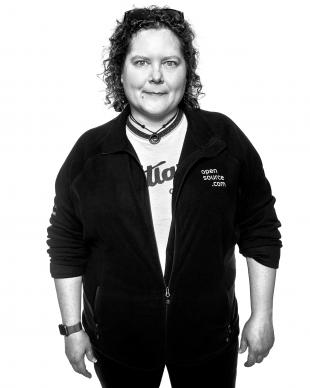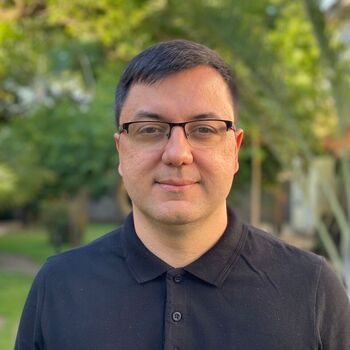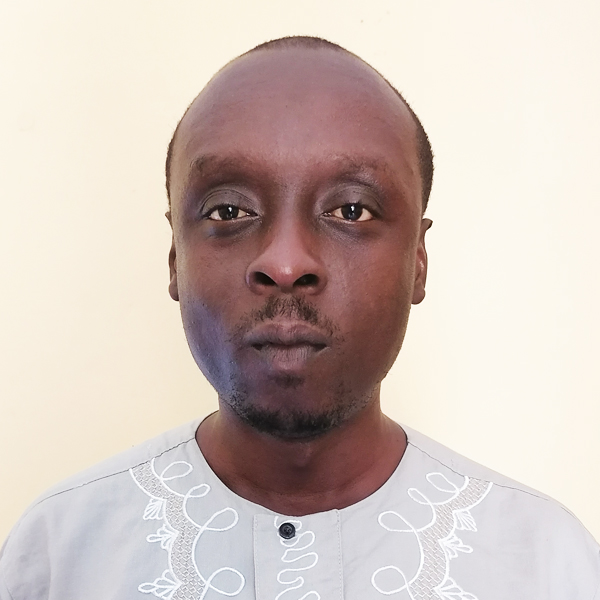Board Elections 2022: Meet the candidates


Board Elections are an important part of LPI‘s governance
Certification holders who become formal members of Linux Professional Institute (LPI) help keep the organization accountable, open and transparent to the open source community.
With elections coming in June 2022, it is important that everyone is familiar with the election process as well as knowing the running candidates.
Candidates
VM (Vicky) Brasseur
Located in: USA

Located in: USA
VM (aka Vicky) is a corporate strategist specialising in free and open source software in the business. She has spent most of her decades in the tech industry leading software development departments and teams, providing technical management and leadership consulting for small and medium businesses, and helping companies understand, use, release, and contribute to free and open source software in a way that’s good for both their bottom line and for the community.
She is the author of _Forge Your Future with Open Source_, the first and only book to detail how individuals can contribute to free and open source software projects. The book is published by The Pragmatic Programmers and is available at https://fossforge.com. She is also in the process of writing a second book for Pragmatic covering how to use, contribute to, and release open source projects effectively and strategically for your business.
Vicky has been a moderator and author for opensource.com, an author for Linux Journal and FOSSlife, the Vice President of the Open Source Initiative, and is a frequent and popular speaker at free/open source conferences and events. She’s the proud winner of the Perl White Camel Award (2014), the O’Reilly Open Source Award (2016), and two Opensource.com Moderator’s Choice Awards (2018, 2019). She blogs about free/open source, business, and technical management at anonymoushash.vmbrasseur.com.
FOSS exists in fascinating space right now. It’s seeing ever-increasing adoption and awareness in corporate and government contexts, all accelerated by the current trend of digital transformation. This adoption and awareness is evident in the studies that show that 90% or more of a typical piece of new software is open source components. These components and the resulting software overwhelmingly runs on Linux, often in a cloud environment. Despite—or perhaps because of—this popularity, employers consistently bemoan the difficulty of hiring people with sufficient FOSS skills and expertise.
While there are other organisations working to capitalise on this situation, with its long history of training and certification and its resultingly strong brand, LPI is uniquely positioned to make a demonstrable difference in the greater FOSS ecosystem.
Which is why I see it’s important to participate in this, the first ever member-elected Board of Directors (BoD) for LPI. This evolution of the LPI governance model comes at the perfect time to catch the FOSS wave that’s sweeping the world. An injection of new ideas and perspectives can help LPI realise its potential to lead the industry in Linux, BSD, and FOSS-related training and certifications at the time when it’s finally figuring out that it needs them.
However, as the first ever member-elected BoD, this group will also perform a critical role in laying the foundation of LPI governance for years to come. This is part of what interests me in joining the LPI board now so I can work with the BoD to:
- Establish policies, procedures, and best practices to ensure the ease of onboarding and therefore the increased success of subsequent member-elected Boards at LPI.
- Lay the foundation for regular communication between the Board and the members who put them in office.
- Advise LPI staff as they develop and implement a long-term straegy to further the mission objective of promoting open source by supporting the people who work with it.
- Collaborate with the LPI BoD, staff, and committees to develop a strategy for leveraging LPI certification in order to open up new opportunities for individuals from groups historically under-represented in technology, and to ensure that certification remains within reach of these people.
_My profile image is copyright Peter Adams Photography and used with permission._
Michinori Nakahara
Located in: Japan

Located in: Japan
My 33+ years of experience with a global IT company and now open source software-based venture provide an additional unique viewpoint and skill-set that would add to the reputation and efficacy of the Board of Directors. My professional history with Free and Open Source Software goes back to 1999, when I worked as manager of Linux business development. In that role, I accomplished the following;
– Provided support and encouragement to the existing Japanese Linux community, such as the Japan Linux Association,
– Started new activities such as LPI for engineer development and enterprise Linux activities with Hitachi, Fujitsu and NEC in conjunction with the Open Source Development Lab (OSDL).
Following that period, I held several positions which required me to work closely with Open Source Software and hence, become intimately familiar with its value to my company and the industry in general.
Some of the other positions I have held in which I worked closely with Open Source Software were: Chairperson, Human Resource Development of Northeast Asia OSS Promotion Forum (April 2006 – March 2009), Chairperson, Human Resource Development of Japan OSS Promotion Forum (December 2005 – March 2009) and Steering Committee member, Japan OSS Promotion Forum (January 2005 – March 2009)
I have written, jointly, the following publications: “OS/2 Warp Internet Connection”, ASCII, (1996) and “IBM Linux Strategy” IDG Japan, (2003)
I have spent almost three decades working directly with Linux and Open Source Software based systems-serving on committees and in organizations dedicated to Linux and shaping Linux education and policies in Japan, and also internationally through my work with IBM and its global partners.
Serving on the board, with fellow seasoned Linux professionals would allow me the opportunity to further expand my knowledge, and contribute a unique Asia-Japan based perspective to the enhancement of the global Linux and Open Source Software community.
Ricardo Prudenciato
Located in: Brazil

Located in: Brazil
With a degree in Information Technology and a postgraduate qualification in Computer Networks, my career has always been entirely focused on Linux and Open Source, mainly working with support and administration of systems and their services.
In over 20 years of experience, I’ve worked at many of the levels that a Linux professional will go through in their career, from trainee to senior, leading and coordinating teams. I’ve also had the opportunity to work in different types of companies, from small to large organisations.
In recent years my focus has been on teaching and mentoring professionals on their journey with Linux and Open Source, sharing the knowledge I’ve acquired throughout my career, through online training focussed on Linux and especially LPI Certifications.
I have published courses on Introduction to GNU/Linux, Shell Script Programming and Preparation for the LPIC-1, LPIC-2 and LPIC-3 Certifications, with more than 40,000 students.
In the last 3 years I have been a member of the LPI Board of Directors, having the opportunity to colaborate with many relevant initiatives that have led to growth and improvement in the organisation’s performance.
The LPI, with its certifications and initiatives, has always been important in my career and I know that it can be of great help to a professional on their journey.
Both because of my experience working directly with Linux over the last 20 years, but mainly because of the closeness I have with the community, my students and the professionals who follow my work, I believe I can help by being a means of contact, a way of bringing discussions to LPI about the real needs and difficulties encountered by professionals in their careers.
The experience of the last few years as a board member has been enriching and I would be grateful to continue collaborating.
Emmanuel Nguimbus
Located in: Cameroon

Located in: Cameroon
Emmanuel NGUIMBUS is a computer engineer, an entrepreneur, a lecturer, Mentor, LPI member, LPIC-3 certified and an LPI Approved Trainer.
He is also the co-founder of some projects using only open source: Open Telemedicine System(OpenTMS), a digital health platform, and OpenStudi, a francophone eLearning platform for FOSS. Emmanuel is a co-founder and the Chair of OPENSECURE Foundation, a non-profit organization promoting Open Source and Cybersecurity.
He is a consultant in the framework of several private and governmental projects, which operates 100% open source. He is a member of private and public working groups, project teams, monitoring and steering committees. In these contexts, Emmanuel was able to familiarize himself with issues of training, management, entrepreneurship, strategy and governance.
I want to join the LPI Board in order to bring my strengths as an engineer, trainer, teacher, entrepreneur and open source ambassador to make LPI the leader in the field of Linux certifications through the improvement of marketing, its Francophonization , its extension in places where it is less known like Africa and its positioning in the academic sector.
1. From my point of view, LPI should be the leader in the field of Linux certifications. Many efforts are being made in this direction; but this goal has not yet been achieved. For example, RedHat certifications are perceived to be more valuable than LPI certifications in the job market. My vision is to make LPI the leader in Linux certifications area.
2. Improve LPI’s Marketing and Branding. In my opinion, the designation LPIC-3 Enterprise Professional devalues this certification. For example, LPIC-2 Linux Engineer appears to have the same marketing value as LPIC-3 Enterprise Professional. After all, the Engineer title is more prestigious than Enterprise professional !
3. Improve the French-speaking side with the translation of documents (course materials) and exams into French.
4. As a native of Africa living on this continent, I can say that LPI is not known enough in Africa, especially in French-speaking Africa. Communication efforts should be made for LPI to be better known in Africa.
5. Usually, a professional uses the technology he learned in school. If a maximum of university students receive at least one LPI training course during their training, then they will promote LPI in the companies where they will work. I will do my best to help integrating LPI certifications into universities training courses.
